How do tokkatsu activities help in green education ?
Tokkatsu activities It includes classroom activities such as
1 classroom discussions
2 morning and afternoon meetings that take place daily .
3 cleaning and serving lunch
6 student councils
This is some of activities applying in Egyptian Japanese school do you think how we apply it so that it help in green education link text
Best posts made by Heba Ali Mohamed
-
Tokkatsu activities in EJSposted in Teaching green
-
RE: Forest schoolsposted in Teaching green
@Ana_moderator
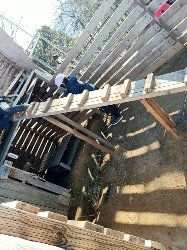
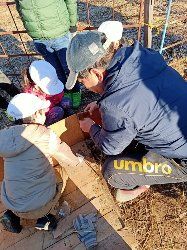
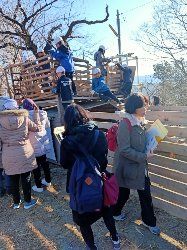
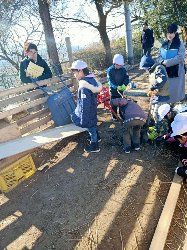
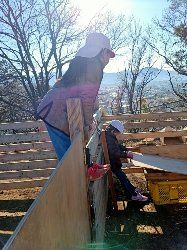
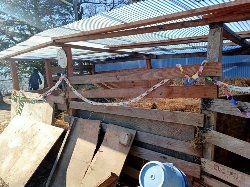
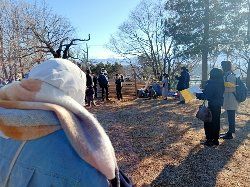
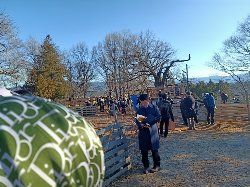
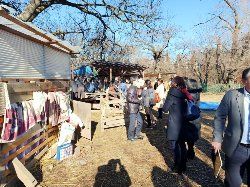
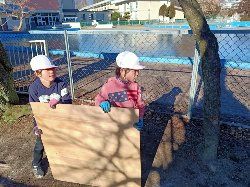
This photos taken by me when I was in Japan . We went to a city Ina in Nagano Prefecture ... it was a training program for Egyptian Japanese school teachers.. I recorded and documented everything and every moment with pic, videos ... it was an amazing journey -
RE: Professional Development Trainingposted in Teaching in the 21st Century Teacher competition 2.0
@Iqra-khan we have here in our school in Egypt something called "training unit" ... you can find it at any school governmental, official or private school... this unit responsible for developing teachers performance and it has a team chosen from the teachers of school and 2 or 3 members out of school like professor from University or trainer... this team has regular meetings... they put a plan according according teachers needs , then they follow this training and takes feedback from the trainees then they assess the progress of teachers performance... the trainings could be face to face at school time or online. The trainers could be from the teachers of the school themselves based of their qualifications , or if they didn't find someone from teachers make the training the unit try to exchange from another school or find a trainer or collaborate with the nearest university and find professor present this training they need ....
-
RE: Get to know your fellow Forum members and tell us a bit about yourself in this discussion!posted in Our forum community
@Ana_moderator
Hi . Its Heba Ali from Egypt.
I'm a mathematics teacher for 15 years . I graduated from hurghada faculty of education mathematics department 2008. I finished my diploma in education technology 2009. And professional diploma in mental health 2010. I finished my master degree in mathematics learning disabilities in 2021 . And now I'm a PhD researcher in same field mathematics learning disabilities.
When I start my work as a mathematics teacher l found that alot of pupils afraid from math and math teacher, so I decided and I do my best to change this feeling and make teaching mathematics more fun by gaming and activities, actually I succeed in primary stages, but my challenge start when I begun teaching for middle school because its hard to change the pupils convictions and also the middle school curriculum is not like primary full of activity songs. But I tried well , I start to search about activities suitable for middle school in mathematics and I applied for them in many international competitions and they start to like math and math sessions. And I make a team for talented pupils. And I was so happy to achieve my goal.
About my spare time I like to spent it in doing exercises aerobics or playing ping-pong. I also like whaching football matches. And I like making desserts . -
RE: What about your project?posted in Teaching in the 21st Century Teacher competition 2.0
I participate in Gamifying classrooms to enhance learners engagement
-
RE: Get to know your fellow Forum members and tell us a bit about yourself in this discussion!posted in Our forum community
@hab*mugisha1 nice to now that we are same subject mathematics. But I teach it for primary stages
-
RE: Workload and Time Managementposted in Teaching in the 21st Century Teacher competition 2.0
I totally agree with you its a big challenge. We have to manage our time wisely so that we palance
Between personal life and work as teacher . From my point of view
I decided to finish all my duties at
Work time even if I feel tired, so that I go home doing only my duties to my family and my self -
RE: Forest schoolsposted in Teaching green
I'm my country i guss no
But I went to Japan before in a training program at and I visited a school which provides the same like forest school all ciriclums based on projects Like animal breeding and Plant cultivation . I have a lot of pictures and videos I'll search for it in my laptop and I'll post it -
RE: Click for more information about medals and prizesposted in Forum medal system
@Ana_moderator I like the idea .... and this is the meaning of community of practice as it should be...
Well done -
RE: Professional Development Trainingposted in Teaching in the 21st Century Teacher competition 2.0
@Iqra-khan
Applying lesson study at school so that it will help in developing teachers performance -
RE: Forest schoolsposted in Teaching green
Forest schools are educational initiatives that provide children with regular opportunities to achieve and develop confidence through hands-on learning experiences in a natural environment. Here are some key features of forest schools:
1.Outdoor Learning
- Nature-Based Setting: Learning takes place in forests, woodlands, or other natural environments.
- Regular Sessions: Children attend forest school sessions regularly, often weekly, throughout the year.
- Child-Centered Approach
- Play and Exploration: Emphasis on child-led play and exploration to stimulate curiosity and engagement.
- Holistic Development: Activities focus on developing physical, emotional, social, and cognitive skills.
3.Practical Skills
- Hands-On Activities: Children engage in activities such as building shelters, fire lighting, tool use, foraging, and nature crafts.
- Risk Management: Encourages calculated risk-taking and teaches children how to manage and assess risks.
-
Connection to Nature
- Environmental Awareness: Promotes understanding and respect for the natural environment.
- Sustainability: Teaches principles of conservation and sustainability.
-
Facilitated by Trained Leaders
- Qualified Practitioners: Sessions are led by trained forest school leaders who guide and support the children's learning.
- Observation and Reflection: Leaders observe children’s interactions and adapt activities to meet their developmental needs.
-
Benefits of Forest Schools
- Confidence and Independence: Children gain confidence and develop independence through overcoming challenges.
- Physical Health: Outdoor activities promote physical fitness and well-being.
- Mental Well-Being: Nature-based learning helps reduce stress and improve mental health.
- Social Skills: Collaborative activities foster teamwork, communication, and problem-solving skills.
Forest schools aim to foster a lifelong love of the natural world and promote holistic development by integrating nature and education.
-
Lesson studyposted in Teaching in the 21st Century Teacher competition 2.0
What do you know about lesson study ?
How it is useful for Teachers ?
What its impact on pupils ?
How we prepare for lesson study ?
What is the sequence when we prepare it ? -
RE: Forest schoolsposted in Teaching green
@FarhanMehboob we have here in Egypt EJS Egyptian Japanese school . Its kind of collaboration between Egypt and japan we have more than 48 EJS around Egypt opened in 2018 ... i worked there since its opening as a mathematics teacher . we teach there our curriculum in English and some japanese activities focused on building personality of child . this activities called tokkatsu .Tokkatsu is a Japanese term referring to a set of extracurricular educational activities aimed at the holistic development of students. Tokkatsu focuses on nurturing the social, emotional, and physical aspects of students, in addition to their academic growth. These activities encompass a wide range of events such as sports, arts, music, teamwork, and community service.
The Tokkatsu system aims to instill values and principles like cooperation, responsibility, and self-discipline among students. It is an essential part of the educational curriculum in Japan and is believed to significantly contribute to the comprehensive development of students, preparing them for practical and societal life.
may be ill make a post represnt more about tokkatsu in our forum -
RE: The formative assessment In the 21st centuryposted in Teaching in the 21st Century Teacher competition 2.0
Formative and summative assessments are two fundamental approaches in education used to evaluate student learning and instructional effectiveness.
Formative Assessment:
- Purpose: To monitor student learning and provide ongoing feedback to improve teaching and learning.
- When: Conducted during the instructional process.
- Methods: Includes quizzes, discussions, in-class activities, peer reviews, and homework assignments.
- Characteristics: Informal, frequent, and often ungraded. It helps identify strengths and weaknesses, allowing for adjustments in instruction.
- Examples: Quick polls, one-minute papers, concept maps, and draft reviews.
Summative Assessment:
- Purpose: To evaluate student learning at the end of an instructional period by comparing it against a standard or benchmark.
- When: Conducted after a unit, course, semester, or academic year.
- Methods: Includes final exams, standardized tests, end-of-term projects, and cumulative essays.
- Characteristics: Formal, infrequent, and usually graded. It provides a summary of student learning and is often used for reporting purposes.
- Examples: Final exams, standardized tests (like SAT, ACT), end-of-term projects, and final essays.
Both types of assessments play crucial roles in the educational process. Formative assessments help guide daily teaching and learning activities, while summative assessments provide a comprehensive overview of student achievements and program effectiveness.
-
RE: Forest schoolsposted in Teaching green
@Engr-Zeeshan thank you for your comment.
Its pleasure to visit Egypt and visit EJS -
RE: What about your project?posted in Teaching in the 21st Century Teacher competition 2.0
Yes but I have a problem in uploading the image of the competition
-
RE: Click to have the E-Teach forum at handposted in Forum mobile version
@Ana_moderator thanks its really helpful
-
RE: Forest schoolsposted in Teaching green
@Ana_moderator
I went to Japan in in a training program. We have visited a school based on projects... it seems like what you write about forest schools... I took alot of pictures to some activities.